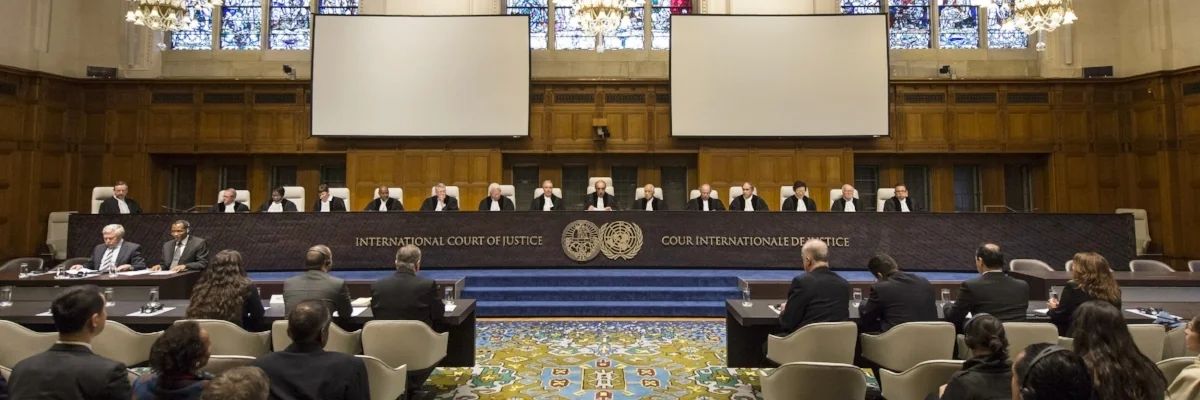Why Iranian Companies Need to Work With International Lawyers
Iranian companies, particularly state owned enterprises, must become more accustomed to working with international legal advisors. As a general rule, Iranian organizations are hesitant in engaging international law firms at the appropriate early stages of commercial negotiations and hire outside counsel only when things go wrong.
Internal legal departments of some of these companies (such as Iran Air) are strong and competent enough. But many others overestimate their ability, while also struggling to justify the budgetary requirements of making use of international legal advice. More importantly, Iranian organizations tend to avoid outsourcing their legal affairs because of concerns over political intervention, breach of confidentiality, and hostile commercial rivalry.
Nonetheless, there are several examples where support of an international law firm has helped partially or totally state-owned Iranian companies to navigate complex issues when facing a legal challenge. A number of Iranian companies contested what was considered the unwarranted imposition of sanctions in European courts. Bank Mellat pursued legal action in both Britain’s Supreme Court and the European Court of Justice with the support of Zaiwalla & Co., a London-based law firm. The bank managed to secure favorable rulings. The Supreme Court (the final court of appeal in the UK for civil cases) ruled in June 2013 that sanctions imposed on the bank in 2009 were “irrational.” And in February of this year, the European Court of Justice made a similar finding, suggesting that the imposition of sanctions on Bank Mellat constituted an “error of law.” As a consequence of these rulings, Bank Mellat is now set to claim financial damages amounting to USD $4 billion against the UK government.
Similar cases include international law firm Stephenson Harwood representing Bank Saderat and National Iranian Tanker Company, and Eversheds representing the National Iranian Oil Company.
While positive experiences working with foreign legal advisors have been mostly limited to cases of litigation or arbitration, knowledge of international commercial law will be of utmost importance in post-sanctions deal-making. This is why there is a significant need for foreign legal advice before things go wrong. After a long period of sanctions, the legal teams of Iranian state-owned enterprises are unlikely to be up-to-scratch with the latest international regulations or the myriad difficulties of complex commercial deals.
The track record of commercial deals gives cause for concern. Several of Iran’s largest European industrial partners abandoned the market as nuclear sanctions were tightened beginning in 2009. Lack of foresight in commercial contracts, which did not include provisions for such a situation, meant that Iran found itself without legal recourse as these partners decided to renege on their contractual commitments. The most famous example is probably the withdrawal of French automaker Peugeot in 2012, which led to mothballing of primary production lines at the state owned Iranian carmaker Iran Khodro. The episode created a great deal of bad blood between the Iranian company and its French counterpart, which has had to promise voluntary compensation as part of planned return to the Iranian market. Such situations, which should be remediated within a legal framework, create lack of trust in foreign partners and become obstacles on the way to healthy future partnerships.
In another episode, the Central Bank of Iran purchased about USD $1.75 billion in bonds in Luxembourg through an intermediary and deposited them in a Citibank account in 2008. The Supreme Court of the United States ruled in Bank Markazi v. Peterson in 2015 that the bonds were Iranian assets and could be seized as part of compensation owed to American victims of terrorism. Iran has now referred the case to the International Court of Justice, and will probably hire international counsellors to handle the case. However, had legal advice been sought before the bonds were purchased, it might have been possible to foresee the risk of asset seizure by the US government.
Hesitations around engaging legal advice can also have consequences beyond industry and finance. For example, there have been calls for the Tehran Museum of Contemporary Art to make its remarkable collections available for international loans, which can generate fees to help revamp the museum. The plans include a possible loan to the Hirshhorn Museum in the United States, but outstanding legal claims in the United States against Iran have led to serious concerns that the pieces may be seized. As such, even Iran’s potential contribution to global arts and culture has suffered because of uncertainty about legal ramifications. Crafting loan contracts with international advice can pave the way for cultural interaction.
At a time when Iran is trying to revive and expand its economic interactions with the rest of the world, collaboration with international legal firms creates a perfect opportunity for legal departments within Iranian organizations and their counselors to exchange knowledge, upgrade their abilities, and expand their knowledge of the latest legal standards. It is time for Iranian companies and their leaders to accept the importance of legal advice for managing risks and making deals in the present international business environment.
Photo Credit: ICJ




